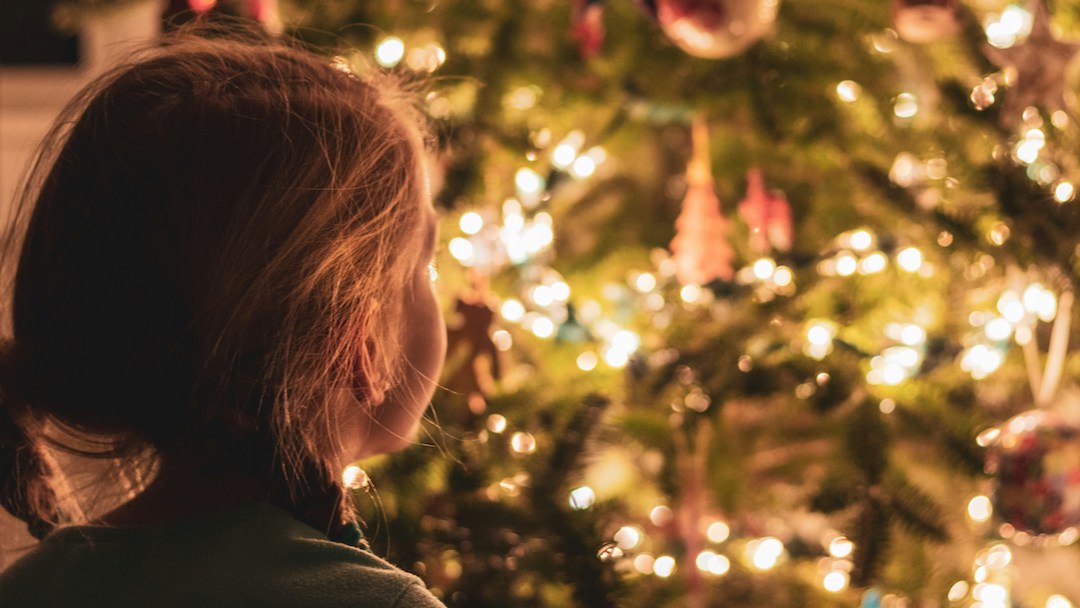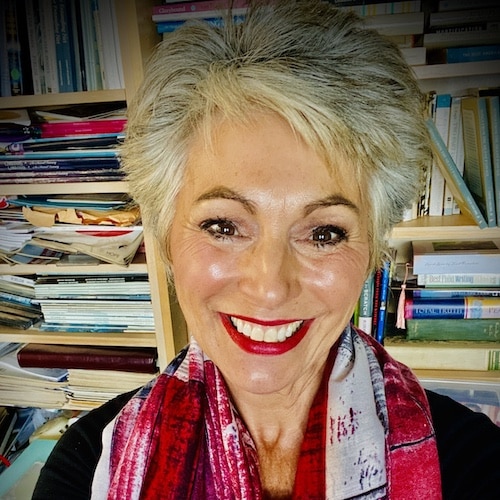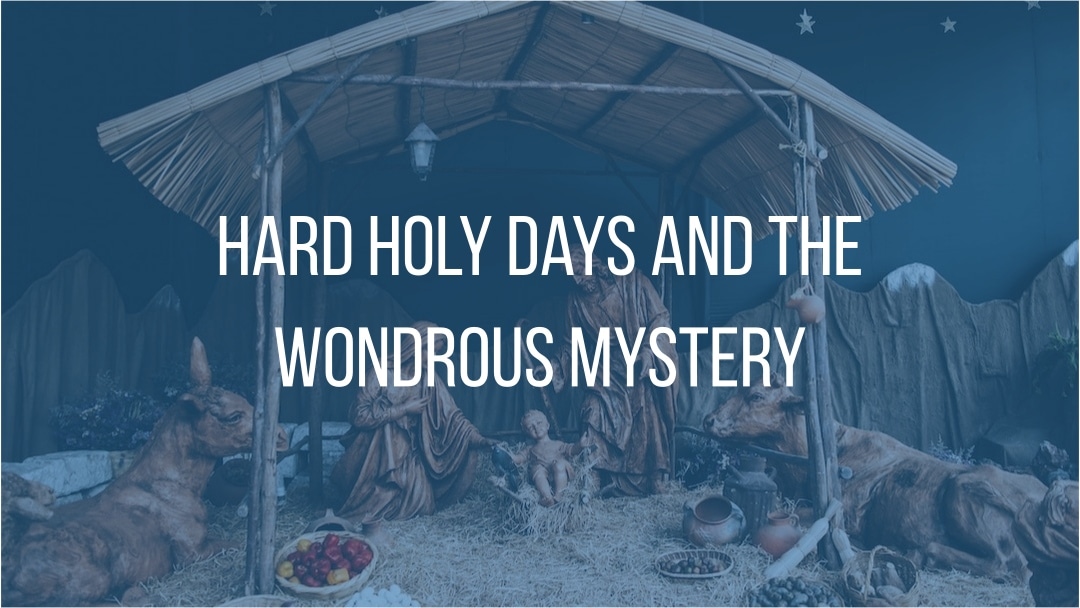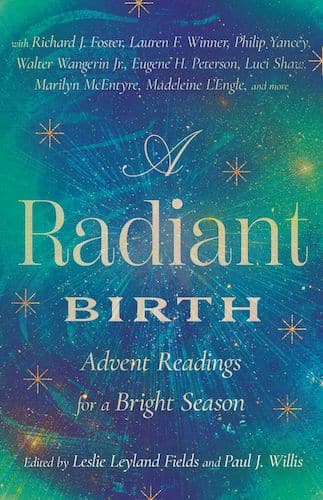Christmas is Over
It’s Christmas morning, not yet light. I am ten years old, creeping down the stairs, and I am full of hope. My siblings and I were told there will be no Christmas. Our mother told us. She always tells the truth. But I believe in more than truth. Once our father surprised us on Easter with speckled chocolate eggs in the backyard. And once we had a special Thanksgiving with pies and everything and people were happy. I read fairy tales, too, and I’ve read The Secret Garden and The Wizard of Oz, so I know for a fact that the world can crack open at just the right time with a grand gift.
I float down the pine staircase, as light as a cloud, buoyed by all the happy endings I believe in. Just before I see the living room, I catch my breath and pause—maybe I even pray. There is likely a god out there somewhere, and maybe he is the kind of God who visits living rooms on Christmas. Finally I dare to look. There—the old Persian carpet, the wooden cupboard, the painting of the girl on the wall. And a deep echoing silence. I blink, deflate, fold to sit on the stairs. It is the Monday-Tuesday-always-everyday room without a tree, without tinsel, without the scatter of presents we had last year. Last year I got a blue bathrobe and a doll. My mother was right. Christmas is over.
And it was. But the loss grew lighter year by year. Our holidays had always been muted, sparse. There were no family gatherings to miss. There was never any money for presents. One year when we were young, my mother had a quarter to spend on each of us six kids. And we were not church people. What was there to celebrate then—our poverty? My father without a job and no prospects? This would be better, then. And there were compensations. Two of those Decembers my mother and the six of us loaded our tents and sleeping bags into our old Country Squire station wagon and drove to Florida to camp for two weeks in the sun. Who needed presents when we came back with a tan?

More than this, the Plain Truth magazines on our tables, my dour grandparents who were devoted Jehovah’s Witnesses, and my mother all informed us that Christmas was a pagan holiday. As were all of the religious holidays, we were told. This was a bonus contributing enough self-righteousness to carry me through the long, empty holidays each year. Not celebrating surely made me more spiritual.
When, as a teenager, I discovered that a Savior had been born even for me, everything changed—except Christmas.
Are Holy Days Supposed to Be This Hard?
My homegrown asceticism wasn’t easily dislodged. I could not reconcile the unending holiday muzak and gaudy consumerism with God’s entrance into the world. Shouldn’t we be fasting instead of feasting? Shouldn’t we be holy instead of happy?
Then I married. Several decades, a husband, and six children later, I am the magic merry godmother of all things Advent: light the fireplace, cut down the tallest tree, hang every ornament, set the table with a dozen candles, invite the neighbors, write plays, host open houses, make cookies for the sick, send shoe boxes overseas, make presents with the kids, and do it all with ribbons, sprinkles, carols, a real Christmas goose, and homemade wrapping paper of course! Most of all, don’t collapse until after New Year’s and Epiphany. And above all, perform it all with a holy mien, a contagious cheer, and a gentle, quiet spirit inviting Christ anew into your weary heart.
And every year I fail. Every year, come December, I vow to do better and still end up hosting these same uninvited guests—exhaustion, guilt, inadequacy, perfectionism, anxiety, failure—who push through my doors and shadow my every move. Maybe my mother was right. Maybe we should just let the baubly hullaballoo pass by our doors entirely. How much simpler and maybe more spiritual the season would be!
Don’t we all do this? We all bring our complicated family histories to the season, which we live out in the midst of a noisy culture hawking its own version of celebration, and some of us add to that cacophony our local church culture, with its own peculiarities and traditions. Are the holy days supposed to be this hard?
John Chyrsostom and the Wondrous Mystery
No. Let’s make it easier. How did the ancients in the faith observe the Advent season? Consider the first Christmas sermon preserved and passed down through the centuries. It was preached in Antioch in AD 386 by St. John Chrysostom, a priest who later became the Bishop of Constantinople. Can you see him standing in a cathedral, the gathered sitting beneath him? How did he begin? “Behold a new and wondrous mystery!”
“Behold!” Were they missing it already so soon, the wonder that “He who is, is born?” The miracle that “He who is above, now for our redemption dwells here below?” With eloquence and beauty and likely a measure of thunder, St. John called his listeners to holy attention.
Are we listening? One thousand six hundred and thirty-seven years have passed since that first sermon. More than two millennia now since God split the night with angels and delivered a bloody mewling infant from the body of a teenager. We try not to forget. We’ve created an elaborate web of remembrance and celebration. We hope we’re doing enough. We wonder if we remember wonder. As the years go by, we behold through dimming eyes.

John Chrysostom, photo by Fr James Bradley (cropped) CC by 2.0 deed.
Adapted from the introduction of A Radiant Birth, written by Lesley Leyland Fields. Book edited by Leslie Layland Fields and Paul J. Willis. ©2023 by The Chrysostom Society. Used by permission of InterVarsity Press. www.ivpress.com.

Leslie Leyland Fields is the award-winning author of twelve books, the founder of Your Story Matters Ministry, and an international teacher and speaker on matters of faith and culture. When not traveling, she lives on two islands in Alaska, where she has worked in commercial fishing with her family and where she leads the Harvester Island Writers’ Workshop. She is the co-author of Radiant Birth with Paul J. Willis.
A Radiant Birth
Edited by Leslie Leyland Fields and Paul J. Willis
Were you aware that the first Christmas sermon preserved in church history was preached by St. John Chrysostom in AD386? Over a thousand years later, several Christian writers formed a group after this man who is generally considered the greatest of the Greek Fathers of the Church – The Chrysostom Society. Lesley Leyland Fields is one of the writers who is a part of this group. Together with Paul J. Willis, they have compiled a volume of works from fellow Chrysostom Society writers offering 42 readings for the first Sunday of Advent through Epiphany in the book Radiant Birth. Contributors include Richard J. Foster, Lauren F. Winner, Phillip Yancey, Eugene H. Peterson, and Madeline L’Engle.
May we all once again behold the wondrous mystery of Jesus birth!
Don’t Miss
The Latest From Our Blog
New Site Launches Tomorrow!
Watch this Space! Tomorrow (May 29) is the official launch of the new The Pastor's Workshop site! Return to this blog tomorrow morning for a post highlighting the new features and explaining how subscribers can get on and start using the site! Here are some new...
How You Can Prep for Pentecost
This was originally posted on May 12, 2016 on https://huffpost.com Pentecost Came Like Wildfire I'm lying on an ice pack early this morning, doing my back exercises and listening to Pray as You Go, a tool for meditation, with monastery bells, music, and a Bible...
Sacred Spaces: the Church Forests of Ethiopia
Let's Go to Ethiopia! Here’s a fun exercise with a spiritual payoff. Go to Google Maps and view aerial images of the South Gondar zone of Ethiopia. Use this button:When the page loads, you'll see a light brown countryside, mostly farmland. There are thin lines of dark...





